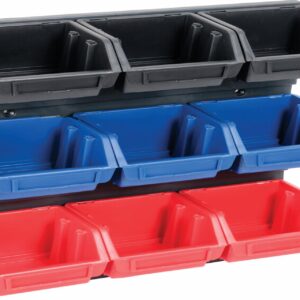Small loans can be a lifesaver when you need quick cash for emergencies, bills, or unexpected expenses. They are easy to apply for and often have flexible repayment terms. However, not all loans are the same, and understanding the key factors can help you make better choices. This guide will explain how small loans work, their pros and cons, and what to consider before borrowing. Read on to make smart financial decisions with confidence.
Money emergencies happen when you least expect them. A medical bill, a car repair, or an urgent home expense can leave you needing quick cash. That’s where small loans come in. They provide fast access to money, helping people manage short-term financial gaps without long-term commitments.
But before borrowing, it’s crucial to understand how these loans work. Interest rates, repayment terms, and lender credibility all play a role in finding the right loan for your needs. This guide will help you navigate small loans wisely and avoid common pitfalls.
What Are Small Loans?
Small loans are short-term borrowing options for people who need limited money. Depending on the lender and borrower’s creditworthiness, these loans typically range from £100 to £5,000. They are meant for immediate expenses, not long-term debt.
Types of Small Loans
Different types of small loans are available, each with unique features. Here are some common options:
- Personal Loans – Unsecured loans that can be used for any purpose, such as medical expenses, rent, or debt consolidation.
- Payday Loans – Short-term, high-interest loans meant to be repaid by the borrower’s next paycheck.
- Installment Loans allow borrowers to repay the amount in fixed monthly payments over a set period.
- Credit Union Loans – Small, low-interest loans offered by credit unions to members with good standing.
- Online Loans – Digital lending platforms that provide fast approvals and flexible repayment options.
Each type has different interest rates and repayment terms, so choosing wisely is crucial.
How Do Small Loans Work?
The process of getting a small loan is simple. Here’s how it typically works:
- Application—Borrowers can apply online or in person, providing basic details like income, employment, and credit history.
- Approval – Lenders review the application and determine eligibility. Some loans, like payday loans, require minimal checks.
- Loan Disbursement – Once approved, funds are deposited into the borrower’s bank account, often within 24 hours.
- Repayment—Borrowers repay the loan based on agreed-upon terms. These may be lump sums or fixed monthly payments.
Interest rates vary based on credit scores, loan type, and lender policies. It’s essential to read the terms carefully before accepting any loan offer.
Pros and Cons of Small Loans
Like any financial product, small loans have advantages and disadvantages.
Pros
- Quick Access to Cash – Many lenders offer same-day or next-day approval.
- Flexible Use – Borrowers can use the money for any personal expenses.
- No Collateral Needed – Most small loans are unsecured, meaning no asset is required as security.
- Easy Application – Online applications make it convenient to apply anytime, anywhere.
Cons
- High Interest Rates – Some loans, like payday loans, have extremely high fees.
- Short Repayment Terms – Many small loans require fast repayment, which can be stressful.
- Risk of Debt Cycle – Borrowing repeatedly can lead to a cycle of debt if not managed carefully.
Understanding these factors helps borrowers make better financial choices.
Where to Get Small Loans
There are several reliable places to get small loans. Choosing the right lender depends on your financial situation and loan needs.
- Banks and Credit Unions – Traditional financial institutions offer personal loans with competitive interest rates.
- Online Lenders – Digital loan providers offer quick approvals and flexible terms, making them popular.
- Peer-to-Peer Lending Platforms – These connect borrowers with individual investors who fund loans.
- Microfinance Institutions – Designed for low-income borrowers, these lenders offer small loans with reasonable rates.
- Government Assistance Programs – Some governments offer small emergency loans for eligible individuals.
Comparing lenders ensures you get the best rates and terms for your needs.
How to Qualify for a Small Loan
Qualifying for a small loan depends on various factors, including credit score, income, and lender requirements. Here’s what most lenders look for:
- Credit Score – A good credit score improves approval chances and lowers interest rates.
- Stable Income – Lenders prefer borrowers with consistent employment or a steady income source.
- Low Debt-to-Income Ratio – Having fewer existing debts increases approval odds.
- Valid Identification – A government-issued ID and proof of address are often required.
Some lenders offer alternative loans with higher interest rates even if you have bad credit.
Small Loans vs. Credit Cards: Which One is Better?
Many people wonder whether to take out a small loan or use a credit card for expenses. Both options have pros and cons.
| Feature | Small Loans | Credit Cards |
| Interest Rate | Fixed | Variable |
| Repayment | Fixed terms | Minimum payments allowed |
| Credit Impact | It may help build credit | Can impact utilisation ratio |
| Best for | Large one-time expenses | Ongoing small purchases |
A small loan is the better option if you need a lump sum with a clear repayment plan. A credit card might be more practical if you need flexibility for everyday expenses.
What to Consider Before Taking a Small Loan
Before borrowing, take the time to evaluate your financial situation and loan options.
- Assess Your Needs – Only borrow what you need to avoid unnecessary debt.
- Compare Interest Rates – Shop around for the best rates and terms.
- Read the Fine Print – Understand the repayment terms, fees, and penalties before signing any agreement.
- Check the Lender’s Reputation – Research reviews and ratings to avoid scams and predatory lending.
- Plan for Repayment – Ensure you have a repayment plan to avoid financial stress later.
By making informed decisions, borrowers can use small loans responsibly and avoid financial pitfalls.
Conclusion
Small loans can be a helpful financial tool when used wisely. They offer quick cash for urgent expenses, flexible repayment options, and easy application processes. However, it’s important to borrow responsibly, understand the terms, and compare lenders before deciding.
Whether you need small loans for an emergency or personal expenses, evaluating your options can save you money and stress. You can control your finances and avoid unnecessary debt by making informed financial choices. Always borrow with a clear plan and a responsible mindset.




